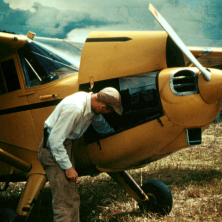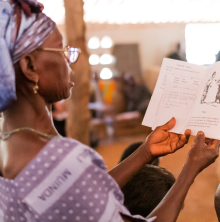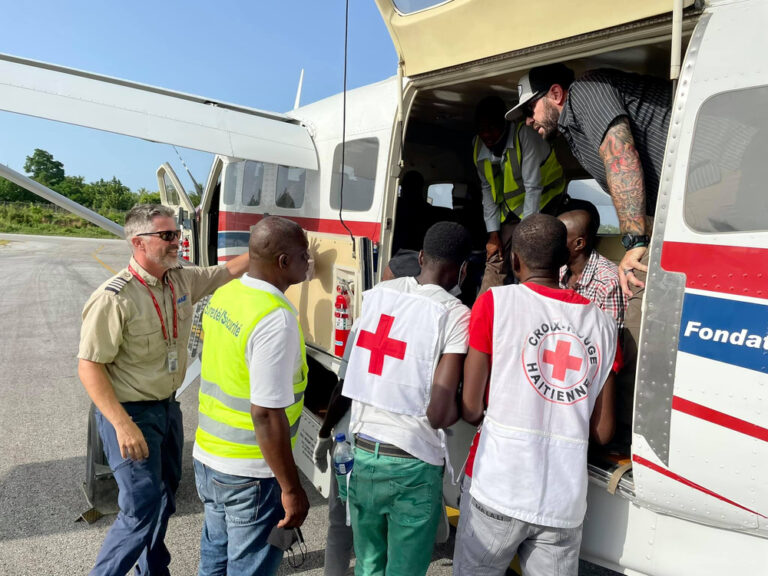
When a natural disaster strikes a country where MAF has a base, the hours and days immediately following are critical for the survival of the people suffering from the fallout. Currently, MAF is working to assess the situation following the earthquake in Sumatra, Indonesia.
The following is an account MAF helicopter pilot John Miller recorded after an earthquake measuring 6.8 on the Richter scale in Irian Jaya (today known as West Papua) on January 19, 1981 spawned landslides that covered entire villages and left people stranded and without food, water, and shelter.
Several weeks ago we were jolted out of bed in the middle of the night as a violent earthquake ripped through the mountains. As I drifted back to sleep, I wondered if this earthquake would result in any additional flying for me. Little did I realize that at the epicenter in the Solo Valley 50 miles away hundreds of people were being buried alive as huge landslides swept away their houses.
Since there was no mission station in the devastated valley, it took a few days for word to come over the trail. Missionary Art Clark in the neighboring Seng Valley called over the radio, “John, how soon can you get down here with the helicopter? We’re getting some incredible stories about whole villages being destroyed and need to check it out.”

“Where’s Sohonat?” exclaimed Art. The whole village was gone with hardly a trace! In some places, half of a village would be gone. The remaining buildings had simply collapsed, often trapping people inside. We made a quick pass down the valley floor looking for casualties or any sign of the missing villages, but everything was buried under millions of tons of rocks and dirt.
As we hovered over one village looking for any sign of life, a feeble old woman struggled out of a hut and tried to run away. We quickly landed and Art ran after her and brought her back to the helicopter. Later we heard her story. Most of the people from the village were dead. The rest had waited until daylight, and they then climbed up the mountainside into the high forests, leaving the old woman and her daughter behind. The daughter stayed two days until the food was gone, and then she left, telling her mother, “You’re old and will die anyway, so I’m leaving.”
Across the valley a few huts remained where the village of Unuklaha once stood. We spotted smoke rising from a hut and went to investigate. Another old woman had been left behind, but she was too frightened to get into the helicopter. We left her some food. Returning each day to drop food, we wondered what to do since her hut was between two large landslide areas with the river below and a 3,000-foot sheer rock wall behind her, completely cutting her off. Finally we located some refugees from her village high up in the forest at the 8,000-foot level. We dropped some food and a message to clear the forest for a helipad, and told them about the old woman trapped below. The next day there was no smoke from her hut. She was gone. Our hearts sank. We flew up to the new clearing in the high forest and landed. Imagine our surprise to find her there grinning at us! Art gave her a big hug. Some men had come for her and somehow they had scaled that 3,000-foot cliff and brought her to the clearing. We flew her and her friends to safety.
Each day we returned to locate refugees and fly them by the dozen to safe areas where they would get food and shelter.
Over the next several weeks, Jim Harris and I evacuated hundreds of refugees and flew many tons of supplies.



